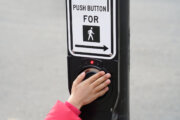American law schools, typically traditionalist and resistant to change, have adapted with rare urgency to the continuing coronavirus pandemic.
In the spring of 2020, most law schools — like other educational institutions — moved classes online, canceled campus activities and events, and restricted libraries and other facilities. Many allowed their students to take classes on a pass-fail basis.
From fall 2020 through spring 2021, law schools conducted most classes and activities virtually or in a hybrid online and in-person format. Despite the efforts of administrators and professors, many students expressed frustration and disappointment that their school year fell short of a full law school experience.
Now that vaccines are widely available, most law schools anticipate a return to in-person instruction in fall 2021. To mitigate health risks, many are planning safety measures like mandatory vaccination, frequent coronavirus tests and social distancing. Many also plan to maintain remote learning options to accommodate international students, students with health concerns and others unable to attend classes in person.
[READ: How to Choose a Law School If You Can’t Tour Campus Due to Coronavirus.]
Most law school campuses are still closed to visitors, although law school admissions offices are offering tours, information sessions and other campus events virtually. Interested applicants should monitor law school websites to see if on-campus events resume by the fall.
Tested by Frustration
After canceling the March 2020 LSAT, the Law School Admission Council, commonly known as the LSAC, moved all tests within the U.S. to a remotely proctored and abridged three-section format called LSAT-Flex, through June 2021. The LSAC plans to continue remotely proctored tests for at least the next few years, although they may also add in-person test sites when conditions permit.
However, starting with test dates in August 2021, the LSAC will expand the LSAT from three sections to four by restoring an unscored experimental section randomly chosen from among the other three section types. This format will mirror the pre-COVID LSAT except it will be remotely proctored and have four rather than five sections; the pre-COVID LSAT had two scored sections of logical reasoning. Each section will be 35 minutes, with a 10-minute break between the second and third sections. Updates are available on the LSAC website.
Students should prepare for this new LSAT just as they would for the digital LSAT, which has been in place since 2019. They should also familiarize themselves with the format and instructions and ensure access to a quiet space with a reliable internet connection. If a laptop or a quiet space is not available, they should contact LSAC for assistance. Over the last year, LSAC has provided thousands of test-takers with loaner laptops and dedicated remote test sites.
While LSAC deserves credit for adapting quickly to an unprecedented situation, the LSAT-Flex has had glitches. Perhaps because of such difficulties, LSAC does not count LSAT-Flex tests taken from May through August of 2020 against limits on repeat testing.
Whether because of the convenience of remotely proctored tests or increased interest in law school, as of April 2021 more than 146,000 people had taken the LSAT in the 2020-2021 testing year, which already was an increase of more than 20,000 test-takers over the entire 2019-2020 testing year, according to the LSAC.
Average LSAT scores have also been on the rise over the last couple of years. More applicants than ever are scoring in the 160s and 170s, perhaps due to improved practice resources, a more qualified pool of test-takers or more comfort with the digital LSAT format.
[Read: How Law Schools Look at Applicants With Multiple LSAT Scores]
State bars took varying and inconsistent responses to the pandemic in 2020, but all plan July 2021 bar exam dates as normal. As of May 18, a majority of states and the District of Columbia have indicated plans to remotely proctor the July 2021 bar exams, as tracked online by the National Conference of Bar Examiners.
Is This a Good Time to Apply to Law School?
For law schools and applicants alike, the past year has been the most competitive and stressful admissions season in recent memory. According to LSAC data, as of June 10 the number of law school applicants this cycle is up about 17% from the previous year and up about 15% from the year before. The number of applications submitted by those applicants is up nearly 30% from last year and about 27% from the year before.
Top-tier law schools, in particular, have been deluged with applications. To make matters worse, many have to accommodate applicants who deferred their admission last year due to the pandemic. Law schools are predicting little movement on waitlists, unprecedented first-year class sizes and less room for transfer applicants.
[Read: Law School Applications Rise: What It Means for J.D. Hopefuls.]
Whether this boom is due to the economic slowdown, popular interest in justice system reforms or other causes, it is likely to subside somewhat next year if it follows the trend of recent recessions. On the other hand, heated competition for seats in law school may linger as economic uncertainty persists in the aftermath of the pandemic.
Pandemic Impact on the Job Market
While the coronavirus pandemic may be incalculably tragic, it should have limited long-term impact on the legal field. Many large law firms already have raised associate salaries in anticipation of increased demand for business, after responding to the pandemic with pay cuts, furloughs of administrative staff and other cost-cutting measures. Relatively few law firms or law jobs have disappeared, unlike during the Great Recession.
In fact, lawyers are more needed than ever in a post-COVID-19 world. America’s triple crises of illness, economic downturn and racial injustice have exposed structural problems requiring legal solutions, from health care disparities to police reforms to the fragility of small businesses.
The global scope of the pandemic has also revealed the dangers inherent in an increasingly complex and multilayered world. There is plenty to keep lawyers busy, even if the pandemic amplified trends toward remote work, contract hiring and automation to reduce costs.
Law students and applicants have reason to feel frustrated about the pandemic and concerned about the next several months. However, the generation of lawyers that weathers this storm will have immense work ahead to safeguard and strengthen the rule of law.
More from U.S. News
How the Coronavirus Can Disrupt Your College Financial Aid
Law School Admissions Process: A Month-By-Month Guide
How to Talk About Yourself Modestly on a Law School Application
The Impact of the Coronavirus on Legal Education originally appeared on usnews.com
Update 06/14/21: This article has been updated with new information.









